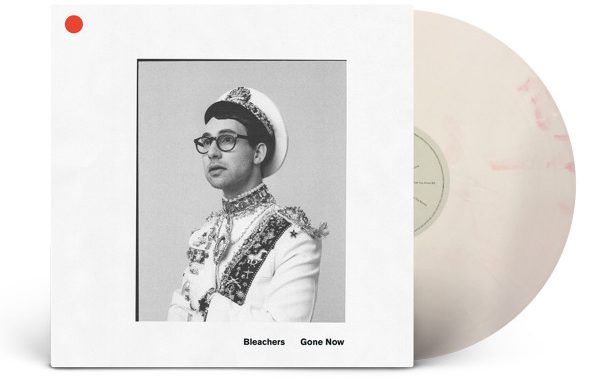
Hanna Da’Mes, Staff Writer |
On June 2, 2017, Jack Antonoff, under his performance artist name, Bleachers, released the album “Gone Now.” Antonoff, lead guitarist of the band Fun. and producer for many pop artists including Lorde, Grimes, Sia, St. Vincent, started up Bleachers as a “side project.” However, it’s turning out to be not so much of a side project after all.
Antonoff’s two albums have garnered attention from those who are interested in a sound that somehow manages to be both new and reminiscent of the oldies. The indie/alternative pop music is influenced in part by music from the 60s to the 90s, including Fleetwood Mac, Weezer, and even the themes of John Hughes films. However, the synthetic impression, saxophone solos, and various recordings give the album a unique sound that reveals Antonoff’s true artistic vision.
The song “Don’t Take the Money” introduced the album as the first single released on March 31, 2017. Its upbeat rhythm is juxtaposed with the bittersweet, slightly cynical view on relationships presented in the lyrics.
The second single, “Everybody Lost Somebody” is largely inspired by the death of Antonoff’s sister when he was 18. In an interview with Rolling Stone, Antonoff revealed that the song was inspired by the events of 9/11 (the title of the song is a common phrase coined after the attacks), and the added trauma that his sister’s death brought him. The overwhelming sense of anguish and mortality is subtle, but not diminished in the single. Some might view the music as too buoyant for the theme of death to hold any true emotion, however, one can argue that the lyrics provide a stark contrast to the tone of the instrumentals, which is effective in creating an insightful message about the contradictory nature of loss and grief.
“Gone Now” has a few references to Bleachers’ last album, “Strange Desire.” “Like a River Runs,” which was also inspired by the death of Antonoff’s sister, has connections to “Everybody Lost Somebody.” The song is largely about a recurring dream that Jack has had about his sister, which he talks about in the 15 minute recording of “Dreams Aren’t Random.” He sings, “I saw you standing on the corner,” indicative of him feeling like his sister is still alive, only to wake up and remember that she is gone.
In “Everybody Lost Somebody,” he sings, “The pain of waiting alone at the corner,” which signifies his acceptance of her loss despite the grief that will never subside. The two songs, although concerning the same subject, are about very different points in both Jack Antonoff’s life and grief in general. The universal experiences that the album presents are some of the many aspects that make the music so enticing.
The theme of grief is carried throughout the whole album, supplemented with motifs of certain imagery and diction. The incorporation of similar lyrics and imagery in his songs appeals to the very humanistic affinity for familiarity. There is even an instance of direct parallelism, in which the song “Goodmorning” is basically repeated, except the word “Goodbye” takes its place. Critics have described this as tacky and unnecessary, but for many, it creates a sense of cyclical nostalgia that most albums do not possess.
“Gone Now” is a great example of how an album can be listened to and interpreted in different ways, allowing for a wider range of atmospheres to be set, which is perhaps what makes it so appealing. It feels timeless, familiar, nostalgic; it is fun and heartbreaking, a perspective on the heightened sensations felt in life.
Leave a Reply